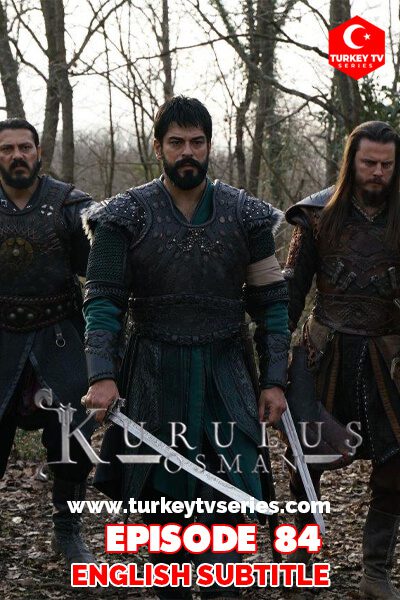Army of The Dead Kurulus Osman Episode 82 English Subtitle
Kurulus Osman With English Subtitle
Army of The Dead
Army of The Dead Zack Snyder’s Justice League), ARMY OF THE DEAD Movie takes place following a zombie outbreak that has left Las Vegas in ruins and walled off from the rest of the world, From filmmaker Zack Snyder Making Movie (300, Watchmen When Scott Ward (Dave Bautista), a former zombie war hero who’s now flipping burgers on the outskirts of the town he now calls home, is approached by casino boss Bly Tanaka (Hiroyuki Sanada), it’s with the ultimate proposition: break into the zombie-infested quarantined zone to retrieve $200 million sitting in a vault beneath the strip before the city is nuked by the government in 32 hours.
With little left to lose, Ward takes on the challenge, assembling a ragtag team of experts for the heist. With a ticking clock, a notoriously impenetrable vault, and a smarter, faster horde of Alpha zombies closing in, only one thing’s for certain in the greatest heist ever attempted: survivors take all. Army of The Dead
Starring Dave Bautista,Theo Rossi, Matthias Schweighöfer, Nora Arnezeder, Hiroyuki Sanada, Tig Notaro, Raúl Castillo, Huma Qureshi, Samantha Win, Michael Cassidy, Richard Cetrone, and Garret Dillahunt. Ella Purnell, Omari Hardwick, Ana de la Reguera, Army of The Dead Kurulus Osman
Facebook Page
Army of The Dead
THE OTTOMAN CONCEPT OF STATE AND THE CLASS SYSTEM
As the empire developed, the Ottoman concept of the state changed accordingly. We have already shown how the Ottomans extended the concept of frontier gazâ – the empire’s fundamental and unchanging principle – and it is natural that a state which considered the defense and extension of Islam as its most important function should meticulously observe the şerîat.
When the empire was still a frontier principality, governmental and legal affairs were in the hands of ulema who had come from the sophisticated centers of the hinterland. The first Ottoman viziers were from the ulema, and Ottoman documents from the first half of the fourteenth century show that already in this period the bureaucratic traditions of near-eastern states had found a place in Ottoman administration and were to become increasingly dominant towards the end of the century.
In the early fifteenth century an anonymous chronicle, written in accordance with the traditions of the frontier, severely criticized the bureaucratic developments of Bâyezîd I’s era – the application of registration and accounting systems, a financial policy aimed at increasing Treasury revenue, and the adoption of the kul-slave- system. Army of The Dead Click
Army of The Dead
In this period, administrators came from old Seljuk centers in Anatolia and from Iran and Egypt, firmly implanting ancient near-eastern concepts of statecraft and administration in this new and rapidly developing empire. This concept of state had developed in the pre-Islamic period and passed to the Abbasid caliphate through the employment of Persian and Christian scribes. Modified between the eleventh and thirteenth centuries by the Turco-Mongol traditions of central Asia, it passed to the Ottomans.
According to the Arab historian Tabarî,1 the Sassanid king, Peroz (459–84), when accused of reducing the people to poverty by heavy taxation, replied, ‘After God, it is wealth and troops which support the ruler and ensure his strength.’ Chosroes I (531–79 AD) expressed a different opinion: ‘With justice and moderation the people will produce more, tax revenues will increase, and the state will grow rich and powerful. Army of The Dead
Justice is the foundation of a powerful state.’ A work entitled Kutadgu Bilig,2 written in 1069 for the Turkish ruler of the Karakhanids in central Asia, expresses this same concept of state, which was to find its way into all Islamic works on political theory: ‘To control the state requires a large army. To support the troops requires great wealth. To obtain this wealth the people must be prosperous. For the people to be prosperous the laws must be just.
If any one of these is neglected the state will collapse.’ Justice, in this theory of the state, means the protection of subjects against abuse from the representatives of authority and in particular against illegal taxation. To ensure this protection was the sovereign’s most important duty. The fundamental aim of this policy was to maintain and strengthen the power and authority of the sovereign, since the royal authority was regarded as the cornerstone of the whole social structure.
The need to increase the state’s revenues and power required the reign of justice, which the Sassanid kings and Muslim caliphs dispensed in a number of ways. The sovereign could at fixed times convene an imperial council, where surrounded by his high officials he would listen to the complaints of the people against the authorities and pass immediate judgment.
If he was hunting or on the campaign, he could receive the written complaints of the people. Or he could send secret agents to the provinces to investigate cases of oppression, every oriental government maintaining as one of its basic institutions an elaborate secret service. Army of The Dead Wach
More dramatically to display this form of justice, the Sassanid rulers used for two days every year to stand as ordinary persons before the Great Magi – the religious leader – and hear any grievances against their rule. A thousand years later we find the same institution maintained by the Seljuk sultans of Anatolia, who for one day a year would go to the kâdî’s court of justice in the capital. If there was any plaintiff against the Sultan, he would stay before the kâdî.
An early Ottoman folk epic in the gâzî tradition reflects the same concept of state. The dervish Sar Saltuk advises Osmân Gâzî; ‘Be just and equitable; do not provoke the curses of the poor; do not mistreat your subjects … keep watch over your kâdîs and governors.
Act justly, so that you may stay in power and retain the obedience of your subjects.’ The Ottomans received this concept of state in a form modified since the eleventh century by the Turco-Mongol traditions of the Seljuk and Ilkhanid empires. Army of The Dead Wach Online
The Persian traditions of state regarded justice as grace and favor of the sovereign’s absolute authority, and the equity of the government as depending ultimately on the sovereign’s ethical qualities. The Turkish traditions of central Asia, on the other hand, regarded justice as the impartial application of the törü or yasa – a code of laws that the founder of the state had established.
Sovereignty and törü are two inseparable concepts. According to the Gök-Türk inscriptions, written in 735 AD, the ideal government is one administered in accordance with the törü. Even after their conversion to Islam, the Mongol khans of Iran reverently preserved in a special depository Genghis Khan’s yasa – code – seeking its guidance in affairs of state.
The ancient Turkish traditions of the state, adapted to life in the steppes, also took a different attitude to finance and taxation. Kutadgu Bilig3 gives this advice to the sovereign: ‘Open your treasury and distribute your wealth. Make your subjects rejoice. Army of The Dead
To Be continue…..




[…] Ocean The sixteenth-century galley was rowed by a crew of men who were all lodged on one deck, with up to six or seven of them handling the loom of the long oar. This technical achievement was comparatively simple and was based on the same principle as the outrigger that supports the oar of a modern “eight. Ocean King Barbaroslar […]
[…] The old Indo-Persian Mirror for Princes literature usually likens the sovereign to a shepherd and his subjects to a flock. God entrusts the subjects to the shepherd so that he may protect them and guide them on the right path, and absolute obedience to this sovereign is the duty of the subjects. Click Here […]
[…] Their livelihood came mainly from raising flocks and taking what they could from their weaker neighbors. Temporary leadership was entrusted to hand, but the scope of their authority was limited to searching for pastures and to military activities and did not extend to relations among individuals within the tribes or among the tribes themselves. Watch Kurulus Osman Watch now […]
[…] There are, however, some rare instances where the sultan promulgated laws directly, without the intermediate steps. The compilation of a kânûnnâme, or the exposition of a point of law, was always within the nişanc ’s sphere of competence. Kurulus Osman 86 Watch Now […]
[…] The usual forms of corporal punishment were amputation of a hand or leg, condemnation to the galleys, and the bastinado. Beatings or, in their place, money fines, were the penalties for minor crimes. The authorities used torture to force criminals to confess and deaths from torture were not subject to inquiry. If a criminal was not found the whole community, such as a village, could be punished. The severity of the punishment varied according to whether the guilty party was male or female, free or slave, married or unmarried, Muslim or non-Muslim, the second member of each of these pairs paying half the amount of the fine. The imperial council in the capital, or councils under the presidency of the head of the military organization to which they belonged, tried members of the military class. On matters concerning public order the sultan, his viziers or other representatives of his authority could impose sentences or grant pardons unrestricted by the kânûnnâme. A bloodless execution by the bowstring was reserved for members of the dynasty and high-ranking officials. Kurulus Osman 84 ENG […]